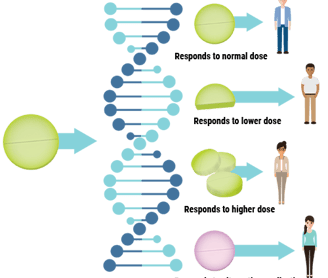The importance of pharmacogenetics in personalized medicine
Pharmacogenetics is a key tool in personalized medicine, as it allows the identification of genetic variants in each patient that can influence their response to drugs. Thanks to the patient's genetic information, more informed decisions can be made about drug selection and dosing, which can improve the efficacy and safety of treatments.
Personalized medicine is based on the idea that each patient is unique and, therefore, so are his or her treatment needs. Pharmacogenetics allows treatments to be tailored to the genetic characteristics of each patient, which can significantly improve treatment outcomes. For example, pharmacogenetics can help predict which patients are more likely to experience serious side effects from a drug, and therefore, doses can be adjusted or a different drug can be used that is safer and more effective for that particular patient.
Pharmacogenetics can also be useful in the diagnosis and treatment of complex diseases, such as cancer. By identifying genetic variants that may influence a patient's response to certain drugs, physicians can choose specific treatments that are tailored to each patient's individual needs and maximize the chances of success.
In addition, pharmacogenetics can also help reduce healthcare costs by minimizing side effects and preventing the need for additional treatments or hospitalizations. This is because, by tailoring treatment to the individual needs of each patient, ineffective treatments or treatments that may be harmful to the patient can be avoided.
If you have any questions, ask whatever you want!




